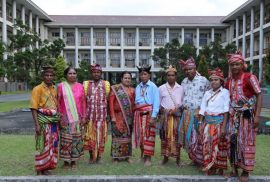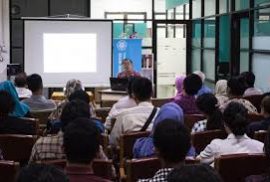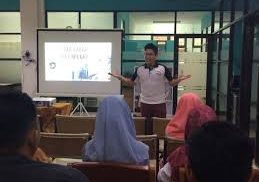The Center for Southeast Asian Social Studies (CESASS) of Gadjah Mada University continues to implement the World Class Professor (WCP) which is mandated by Ministry of Research, Technology, and Higher Education of the Republic of Indonesia (Kemenristekdikti).
After the collaboration with Prof. Dr. Thomas Hanitzsch from Ludwig-Maximillian University, Germany and Prof. Dr. Judith Schlehe from Freiburg University, Germany, the senior researchers of CESASS UGM, such as Dr. Budi Irawanto, Dr. Muhammad Sulhan, and Dr. Bevaola Kusumasari visited the faculty of Communication Studies, Auckland University of Technology (AUT) and the Pacific Media Center (PMC), AUT in New Zealand on 3rd -10th October 2017.







